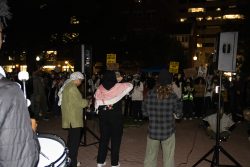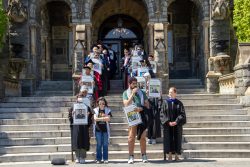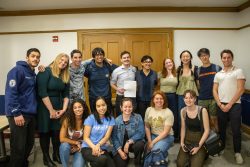In collaboration with the Georgetown Scholarship Program, GUSA has established a new Committee on Class, Equity, and Access, applications for which are now open. According to the committee’s proposal, it aims to “identify and compile a comprehensive documentation of issues on Georgetown’s campus related to socioeconomic status and inequity.”
“Georgetown rarely talks about class,” wrote GSP Strategic Advocacy and Outreach Chair Jimmy Ramirez (COL’15) in an email to the Voice. “When we do talk about it, we do not create a space for students from a low income background to share the unique obstacles they have faced and continue to face on the Hilltop.”
The idea for such a committee arose after a coffee-chat between members of the GSP and GUSA in which students voiced the need to have productive conversations with faculty and staff about socioeconomic diversity on campus.
“For me, events like the coffee-chat between GUSA and GSP are really about providing personal testimony and recognizing shared experiences,” said Grace May (COL’16), GUSA secretary of social justice and chairperson of the committee. “GSP has done an incredible job creating a strong support system for its scholars, but there are still students who enter Georgetown and struggle to find that sense of place or community because of structural or cultural barriers.”
For her, the issues are more multifaceted than simply tuition. “The issues we’ve identified and discussed range from smaller financial burdens that students face in joining club activities with fees to a lack of transparency and accountability in important services like food and housing,” she said.
According to their proposal, the committee aims to address socioeconomic inequity on campus by creating strategic partnerships across campus organizations, engaging in meaningful conversations with students, faculty, and administrators, and generating policy changes through targeted advocacy.
“Today’s Georgetown is very different than the Georgetown of the past and we would like to brainstorm ways to have productive conversations about that diversity,” Ramirez wrote, noting that there is a lack of understanding on Georgetown’s campus that students come from different socioeconomic backgrounds and that it can be problematic when professors assume that all their students are privileged.
Ramirez emphasized that this committee is unique in that past GUSA committees were not representative of the students affected by this issue, a sentiment echoed by May.
“I think the committee is important because it presents the opportunity to take a comprehensive and action-oriented approach to the challenges facing students who often feel invisible or isolated,” she said.




